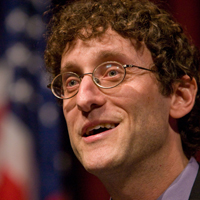Oberlander’s NEJM commentary: Supreme Court holds power to undo Affordable Care Act
December 10, 2014 The Affordable Care Act (ACA), colloquially known as Obamacare, was signed into law in 2010 as part of the most significant reorganization of the U.S. health-care system since Medicare’s introduction in 1965. Its supporters saw it as a way to provide access to health care for nearly 47 million uninsured, to allow coverage for young people up to age 26 facing a job market greatly hobbled by recession, and to provide portability and fairness to health insurance coverage by allowing people to retain coverage when they left their jobs or faced catastrophic illness. From the outset, however, there was little popular or political support for the program, and it squeaked through without a single vote from Republican legislators and even drew opposition from a few Democratic dissenters. For the last four years, Republicans have been leading the charge to dilute or dismantle the law. The ACA narrowly survived one U.S. Supreme Court challenge.
Now, according to Jonathan Oberlander, PhD, in a “Perspective” commentary published online Dec. 10 in The New England Journal of Medicine, it faces another round in the high court. Oberlander, professor of health policy and management in the UNC Gillings School of Global Public Health and of social medicine in the UNC School of Medicine, writes that “Obamacare was born with shallow political roots that encouraged Republicans to believe they had a reasonable chance of overturning it.” Those attempts to undermine the law have failed so far, and are likely to fail as long as President Obama is in office, as the President can and will veto anti-ACA legislation. If opponents of the law took a targeted approach against specific vulnerable provisions, such as the mandate that individuals obtain health insurance or pay a penalty, they might have more success. However, Oberlander writes: [w]ith such policies beyond repeal, Republicans must consider whether it’s in their interest to push for peripheral provisions that won’t actually undermine the law and whose removal could, in the long run, potentially make Obamacare more popular and effective. The Supreme Court’s decision to hear King v. Burwell is the truest current threat to the ACA. The case challenges the legality of federal government’s providing subsidies to pay insurance premiums for people who live in the 34 states who chose not to establish an ACA insurance exchange. “A decision to prohibit subsidies,” Oberlander writes, would destabilize the health insurance marketplaces and unravel the individual and employer mandates in those states, exacerbating the already large disparities in insurance coverage among states.” One survey found that 63 percent of Americans now favor improving, rather than repealing, the ACA. The uninsured population has decreased by about 25 percent since all provisions of the law took effect in 2013, allowing nearly 7 million people to obtain health insurance through the exchanges and serving an additional 9 million through Medicaid and the Children’s Health Insurance Program. Given refinement, the law can provide people in the U.S. with a successful and equitable health-care program. On the other hand, “if the Court dramatically narrows the ACA’s scope,” Oberlander said, “the law’s recent momentum will be reversed, the fight over Obamacare will intensify and the future of health care reform will be highly uncertain.”

